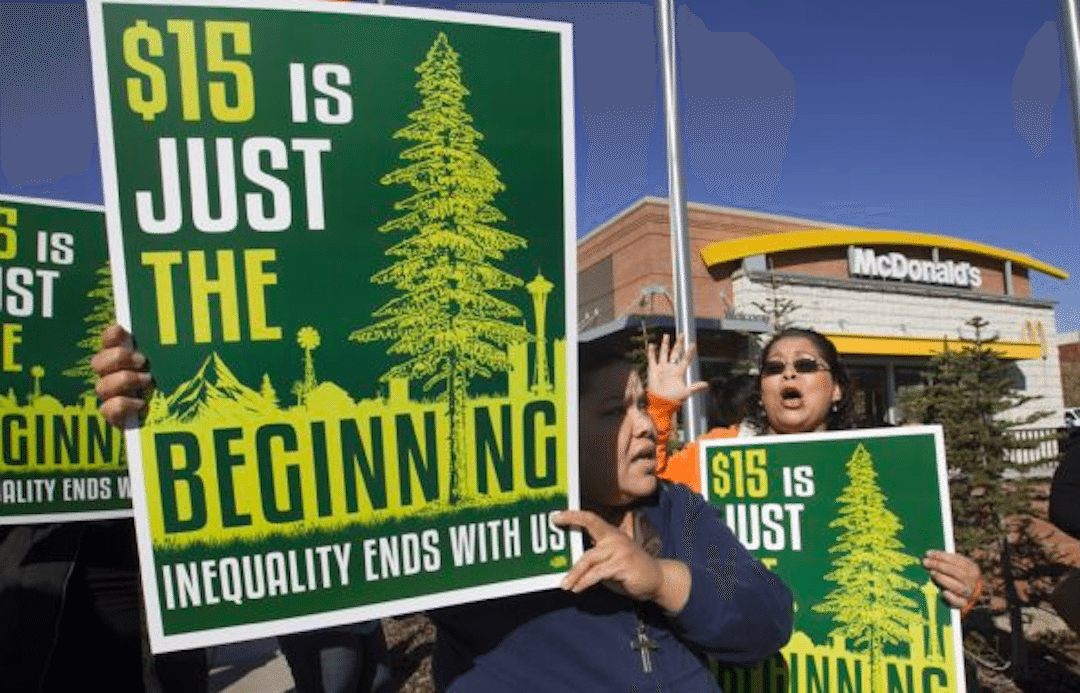Working Washington, an affiliated organization of the AFL-CIO that advocates for a $15 minimum wage, has set its sights on Yakima. Today, the group organized a rally in Yakima as a means to launch a $15 minimum wage campaign, calling for Yakima’s “agricultural, fast food and other entry-level-wage workers to join them in demanding the same $15 wage as workers in Seatac.”
As the Washington Policy Center points out, “Yakima workers already enjoy one of the nation’s highest ‘real’ minimum wages after adjusting for the city’s low cost of living.” In fact, according to a report by SmartAsset, Yakima has the third highest “real” minimum wage in the nation. Adjusted to the cost of living, Yakima’s current minimum wage of $9.47 is equal to $9.69 in purchasing power. The Washington Policy Center,
“In fact, three cities in Eastern Washington occupy the top three spots for U.S. cities with the highest “real” minimum wage. Kennewick tops the list at number one, with Spokane coming in second.”
A $15 minimum wage in Yakima would certainly prove damaging to the city’s economy. Yakima’s unemployment rate is 6.8%, a high figure when compared to the state’s unemployment rate of 5.3%. The Washington Policy Center,
“Forcing employers to pay a $15 minimum wage will not encourage employers and entrepreneurs to create more jobs. It will, of course, do the opposite. Employers will look for ways to offset the artificially high labor costs—by increasing prices, reducing workers’ hours and benefits, or automating. A plethora of studies have made this correlation, finding the greater the wage hike, the greater the negative impact on employment, especially for the lowest skilled workers. Of course, that does not even take into consideration the unquantifiable number of jobs that will never be created because would-be business owners decide it just isn’t worth it given such high labor costs.”
It’s unclear whether or not Working Washington would like to include an exemption for labor unions in Yakima. Considering it is a big labor affiliated group, it’s safe to bet exemptions are in the works. The $15 minimum wage is, after all, about unionization (as SEIU 775 President David Rolf admitted).




